Research News
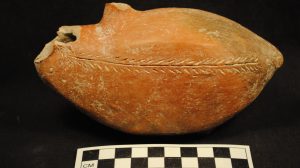
The soil in the ancient Cyprus field is the color of parchment paper and packed hard. On an early summer day with temperatures that creep toward 100 degrees, UNC Charlotte researchers Steven Falconer and Pat Fall carefully dig through centuries of archaeological sediments, inch by painstaking inch.
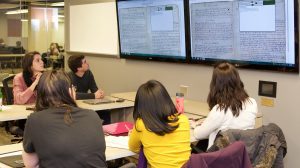
In the fragile pages of recipe books from the early modern period, UNC Charlotte researcher Jennifer Munroe and her students find traces of life and death. They decipher the words and absorb the daily struggles and joys of the women who created these chronicles of life between 1550 and 1800. These books are much more than repositories for recipes. Through the process of transcription, scholars worldwide are digitizing images of each page of old books, transcribing the vocabulary and script and publishing the content in online databases for the world to study and share.

UNC Charlotte Professor Emeritus Ted Arrington has won third place in Common Cause’s second annual Gerrymander Standard Writing Competition. Arrington’s paper presented criteria for determining when districting arrangements so distort the process of translating votes into seats in a legislature that the process or the redistricting plan rises to a constitutional violation.

One in every eight couples nationwide struggles to conceive or maintain a pregnancy. At least 4,000 people are seeking infertility treatment in Charlotte. As Charlotte emerges as a hub of knowledge and resources on the topic, two UNC Charlotte researchers are focused on improving how caregivers and patients communicate around this medical condition.
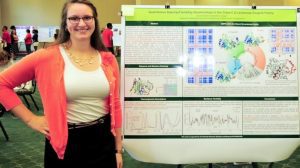
Hundreds of UNC Charlotte undergraduates have participated in the Charlotte Research Scholars initiative at UNC Charlotte in a 10-week summer program. Those chosen receive a scholarship to work closely with faculty mentors conducting research and participate in professional development sessions to better prepare them for graduate school and careers.

The drive to learn how the sun weathers rock has taken UNC Charlotte earth scientist Martha-Cary “Missy” Eppes to great lengths – to the arid deserts of the Southwest, the periglacial boulder fields of Pennsylvania and Virginia, and even to the surface of Mars. Mechanical weathering, the physical means by which rock is broken into smaller fragments, is one of the primary processes that defines Earth as we know it. Without it, there would be no erosion, no soil, no sediment from which resources like water and oil can be readily drawn, and no ready access to rock nutrients that are required by flora and in turn, fauna.
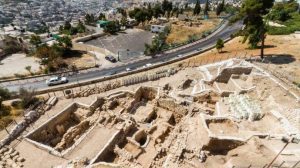
Jerusalem, rich in culture, history and historical conflict, is the spiritual capital of the Western world. Since 2007, a large, complex archaeological excavation has been conducted there under the direction of UNC Charlotte in an archaeological investigation perhaps unlike any other.
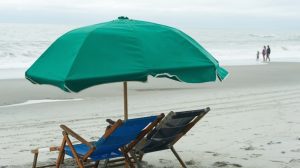
The phrase “putting your best face forward” takes on significance in the work of UNC Charlotte researcher Amy Canevello, an assistant professor of psychology who studies the dynamics of relationships
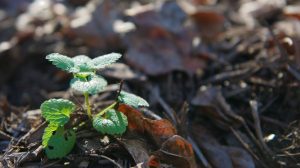
The groundbreaking research by UNC Charlotte psychologists Richard Tedeschi and Lawrence Calhoun continues to influence other researchers and to help people navigate contemporary challenges, such as terrorism, natural disasters, deaths and other crises. Tedeschi and Calhoun identified a concept they called Posttraumatic Growth.
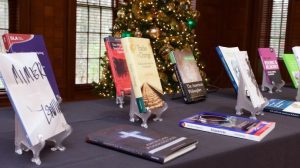
In a significant contribution to research, teaching and engagement at UNC Charlotte, faculty in the College of Liberal Arts & Sciences in 2015 published 30 scholarly and creative books that represented subjects as diverse as the College itself. Most of the books are intended primarily for classroom use or as resources for further research, while several of the books are intended for general audiences.
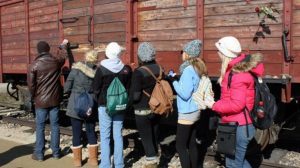
Atrocities can start with seemingly insignificant acts. UNC Charlotte students have learned this painful, yet powerful lesson through their in-depth study of the Holocaust. As scholars in the course “Bearing Witness to the Past: A Journey to Auschwitz,” they have traveled to the death camps of Auschwitz and Krakow. They have studied the photographs of the dead and read their names. They have seen the mute mountains of surrendered belongings – the shoes, the battered suitcases, the eyeglasses.
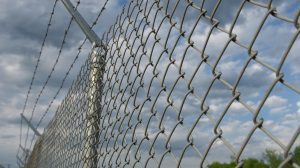
Allegations of brutal torture and abuse of suspected terrorists by the CIA and the U.S. military have heightened the debate about the effectiveness, morality and frequency of torture in the face of terrorist threats. Research centered at UNC Charlotte offers important insight into the agencies that engage in torture and the conditions under which they do.

UNC Charlotte and Gaston County are working together on an effort to protect and monitor a key portion of the county’s water supply. Funded by a grant from the Centers for Disease Control and Prevention, the “Healthy Wells” program will establish a public digital database of the county’s wells and promote the protection of private well water supplies.
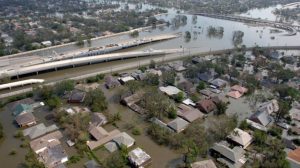
Ten years ago, just days after Hurricane Katrina barreled through New Orleans leaving in its wake chaos and devastation, researchers Cherie Maestas, now of UNC Charlotte, and Lonna Atkeson, of University of New Mexico, were preparing a national public opinion survey to understand the American public’s reaction to the intensely emotional news coverage of the storm.

Undiagnosed sleep disorders may be sabotaging students’ academic success, a study by UNC Charlotte psychology professor Jane Gaultney suggests.
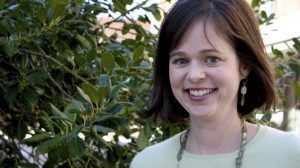
As the new director for UNC Charlotte’s Center for the Study of the New South, Ashli Quesinberry Stokes will draw upon her research expertise and knowledge, along with her leadership and community engagement experiences, to lead the Center in its work.
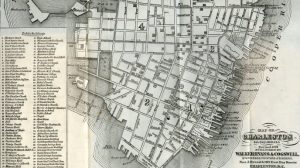
In the wake of the shooting of nine black worshipers at historic Emanuel African Methodist Episcopal Church in Charleston, faculty from UNC Charlotte’s College of Liberal Arts & Sciences are providing context and resources at the regional, national and global levels.
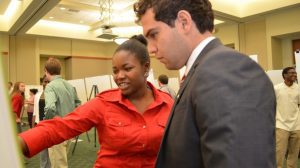
UNC Charlotte student scholars are researching diverse topics ranging from lightning strike patterns in the Southeast U.S. to the connection between Maya Angelou’s poetry and contemporary hip-hop to the impact of UNC Charlotte’s student-run food pantry.